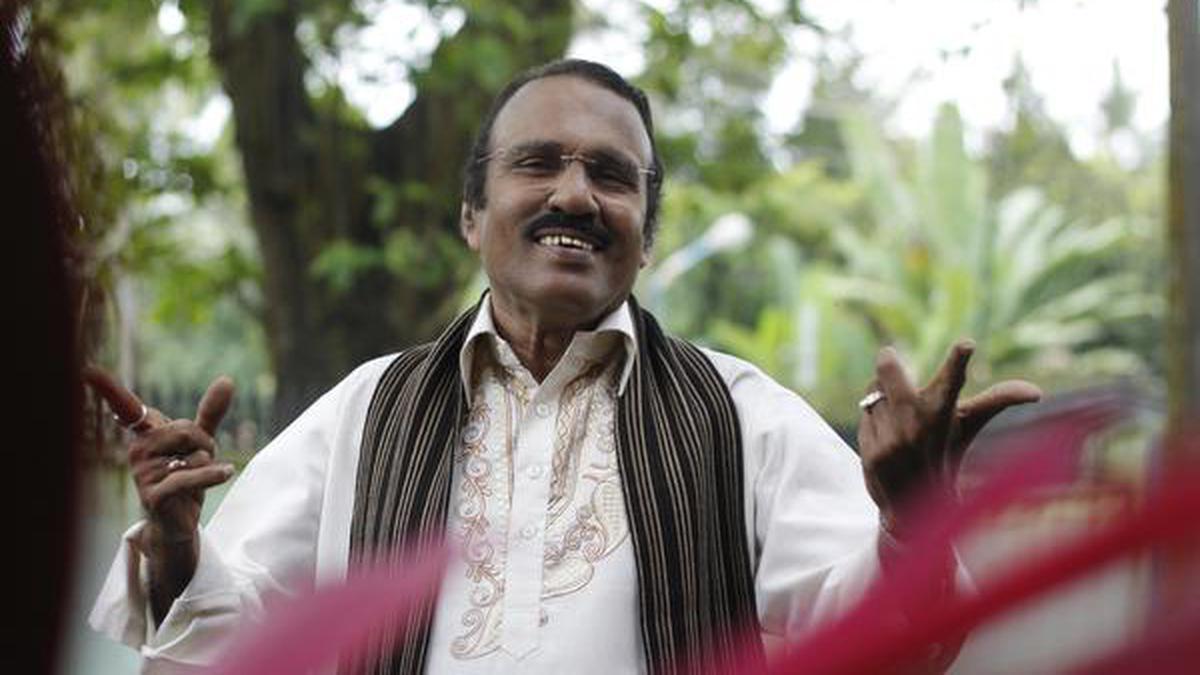
When you utter the word ‘ghazal’, what often comes to mind are the timeless verses of poets like Mirza Ghalib paired with the soulful tones of maestros such as Mehdi Hasan, Farida Khanum, Ghulam Ali, and Jagjit Singh. Ghazal, an exquisite blend of poetry and music, celebrates deeply emotional content, making it a favorite in North India. Despite its established roots in the northern part of the country, ghazal has been struggling to maintain its appeal and draw audiences. However, in a surprising turn of events, this mesmerizing musical form has found a burgeoning audience in the southern state of Kerala, traditionally dominated by Carnatic music. This cultural shift can be attributed in large part to the efforts of musician and composer Umbayee.
Umbayee, known for his distinctive singing style, played a pivotal role in introducing ghazal to the Keralite audience. In a bold and unprecedented move, he began composing ghazals in Malayalam, breaking away from its traditional linguistic confines. However, this decision was met with resistance from the music industry; many poets were hesitant to write for him, fearing that the essence of the genre would be lost in translation. Despite these challenges, Umbayee remained steadfast in his belief that emotions of love and heartbreak, the core of ghazal music, are universal and could be expressed in any language. He singlehandedly established a new cultural milieu in Kerala for ghazals, paving the way for future artistes who later embraced the genre.
One such artist is Raaza Razaq, a ghazal singer who points out that while the form may not adhere strictly to traditional elements such as radif (where every couplet ends with the same word or phrase), qafia (a repeating pattern of words), and maqta (the last sher or couplet in a ghazal), the people of Kerala have grown to appreciate the emotions conveyed through the poetry. Raaza is set to release an album featuring ghazals that reflect his personal thoughts and experiences, further solidifying the genre’s presence in the state.
Notably, musicians like M. S. Baburaj and P. Bhaskaran have also contributed to this musical trend by incorporating Hindustani raags into their compositions, thus broadening the appeal of ghazals in Kerala.
. These efforts have been instrumental in creating a unique blend that resonates with the local audience.
Sunitha Nedungadi, a prominent figure in the Kerala ghazal scene, is known for her adaptations of poetry by celebrated Malayalam poets such as Sugathakumari, Vayalar, and P. Kunhiraman Nair. She notes that the genre has evolved from its traditional themes of love and spirituality to address contemporary issues. However, she expresses some reservations about translating ghazals from Urdu and Farsi into Malayalam, fearing that the essence and depth of the original poetry might be lost.
Historically, ghazal performances were accompanied by traditional instruments such as the harmonium, tabla, sarangi, and oud. Over time, the inclusion of other instruments like the flute and guitar has brought a contemporary sensibility to ghazal music. This evolution has allowed modern poets’ works to be interpreted in a way that resonates with newer audiences. The live rendition of ghazals not only conveys the meaning of the lyrics but also captures the energy and mood of the singer, making each performance a unique experience. “Ghazal is the language of the heart,” says Ahmed Mueenudheen, a ghazal lyricist, emphasizing the emotional depth that this form of music carries.
Malayalam ghazals, characterized by their simplicity in language and expression, channel the poet’s thoughts and emotions convincingly. Often, colloquial expressions and commonly used words find their way into these compositions to reach a broader audience. This linguistic adaptability has allowed ghazals to transcend their traditional cultural and linguistic barriers, finding a new resonance in Kerala’s cultural setting.
The embrace of ghazals in Kerala signifies a fascinating cultural evolution. A genre once confined to the northern parts of India has successfully integrated into a region with a rich and distinct musical heritage of its own. As ghazal continues to thrive in this new territory, it stands as a testament to the universal appeal of music and poetry — a celebration of emotions that know no boundaries.












